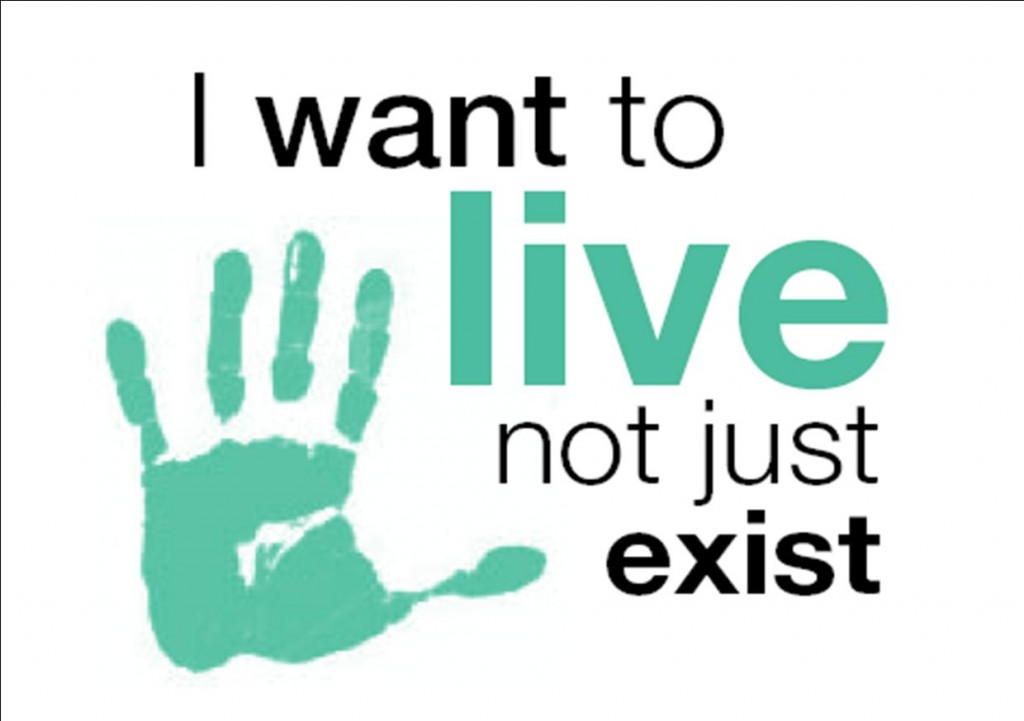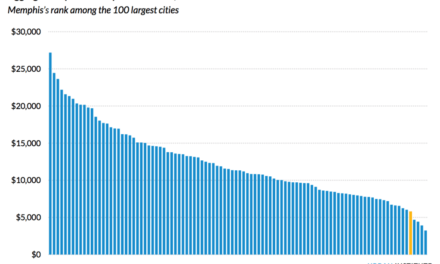Discussions about the living wage sometimes are treated like a dry, abstract subject debated by economists without it being connected to real people and real economic growth.
In Memphis, the living wage is in truth a strategy for expanding the Memphis economy with a significant injection of income that stimulates spending, encourages savings, and provides more disposable income to families who cannot now meet their basic needs. It goes without saying that the economic benefits pale in comparison to the human consequences of a median household income in Memphis that does not reach the level of a living wage for two adults and one child.
If every household received the living wage needed for one adult and one child, it would create about $243 million in new income in Memphis.
If every household received the living wage needed for an adult and two children, the direct economic impact would be about $2.2 billion.
Wages That Aren’t Living
In other words, the living wage is no abstract concept for Memphis. It is one of the city’s most significant economic development opportunities while underscoring how inadequate the existing minimum wage is in meeting the basic expenses of a significant portion of Memphis families.
The $7.25 an hour minimum wage does not provide a living wage for most American families, and that is equally true in Memphis. The living wage for one adult and one child is $20.65 an hour and $24.16 an hour for one adult and two children, according to the M.I.T. Living Wage Calculator. In other words, a family of four needs to work more than three full-time minimum wage jobs (68 hours a week per adult) to earn a living wage.
“Establishing a living wage, an approximate income needed to meet a family’s basic needs, would enable the working poor to achieve financial independence while maintaining housing and food security,” according to M.I.T.
“When coupled with lowered expenses, for child care and housing in particular, the living wage might also free up resources for savings, investment, and/or for the purchase of capital assets (e.g., provisions for retirement or home purchases) that build wealth and ensure long-term financial security.”
And He’d Call It Christian Charity
In this context, it’s nothing short of stupefying, not to mention the complete absence of common compassion, that Tennessee Senator Brian Kelsey would have led the fight to eliminate the right of Tennessee cities and counties to set policies for a living wage that are in the interest of their own people and the futures of their own jurisdictions.
But if that wasn’t enough, his law prevents any local government from passing future “wage theft” requirements. Even in the alternate political universe that exists in the Tennessee Legislature, it’s hard to fathom why legislators would want to stand on the side of the thieves who prey on their fellow Tennesseeans.
Living wage ordinances were passed by City of Memphis in 2006 and by Shelby County in 2007 to require all employees and contract companies receiving government business. The standard was $10 with health insurance and $12 without health insurance. In addition, City of Memphis should take its position as a national leader by increasing the minimum wage here to at least $12 for all jobs inside the city limits.
In other words, despite demagogues like Mr. Kelsey, the “living wage” enacted by city and county governments was not a living wage at all, unless a person is prepared to live the monastic life of a monk and to never marry or have children.
Harsh Realities
According to M.I.T., a $10.73 an hour job is only a living wage standard that meets the needs of one adult. The $10 per hour falls woefully short of a living wage for one adult and one child and for one adult and two children.
It’s why Memphis pays such a price for the decision 30 years ago to double down on industries that pay low wages (just this week EDGE approved $1.2 million in tax freezes to lure 174 warehouse jobs paying $12.75), and the reality of the global economy only deepens the problem. Mid-wage occupations made up about 60 percent of the job losses during the recession, but those mid-wage jobs have only made up 27 percent of the jobs gained during the recovery.
Meanwhile, low-wage occupations have dominated the recovery with 58 percent of the job gains since 2010. To compound the problem even more, 75 percent of the jobs created in 2013 were part-time. This year, the Federal Reserve predicts that the Memphis region will create 10,000 jobs, but the question remains: Are they predominately low-wage?
All in all, the trends make the dream of upward mobility more and more a delusion, particularly for a city where 46 percent of its children living in poverty. A child born into the bottom 20 percent of the income distribution (in Memphis the bottom 20 percent has a household income of $13,522, or 88 cents an hour less than the minimum wage) has a less than 1-in-20 chance to making it to the top 20 percent. To cap it off, between 2007-2012, the bottom 20th percentile saw a salary decrease of $1,231 in Memphis.
Connecting Inequality and Business Climate
A new study by economists David Neumark and Jennifer Muz of the University of California, Irvine, concluded that there is a clear connection between economic inequality and low-tax, low-cost state business climates (or, more accurately, business climate indexes based on those factors). As they put it: “The same tax and cost related indexes that are associated with higher economic growth are also associated with increases in inequality.”
These are the realities that complicate our dream of disrupting inequality in Memphis, particularly when a seminal selling point for our city to prospective businesses is our cheap labor. It’s why we cringe when we see headlines like the one in The Commercial Appeal: “Low wages help attract manufacturers to Memphis.”
The article pointed out that Electrolux, which received more than $180 million in government incentives two years ago, said, when it was seeking its property tax break, that it would pay an average of $14.64 an hour, excluding benefits, or $586 a week.
Employees, however, tell of $12 an hour salaries, and that’s still better than average entry level wage for production workers in the Memphis region which were $9.10 last year,
It’s All About Opportunity
With the combination of low labor costs, low utilities, low-cost industrial acreage, and access to one of the globe’s most efficient distribution networks, it’s a puzzlement that Memphis has to waive taxes at all to recruit new businesses.
Here’s the thing: today, where someone lives is a proxy for opportunity. When it comes to a majority African-American city like Memphis, the words of Angela Glover Blackwell, founder and CEO of PolicyLink ring in our ears: “Millions of people of color live in neighborhoods that lack the basic infrastructure – good schools, transportation, grocery stories, job opportunities – that everyone needs to be healthy and productive.
“African-Americans go to the worst schools, face the highest rates of joblessness, are concentrated in the lowest-wage jobs, and have the fewest opportunities to move up and enter the middle class. Many historic African American neighborhoods have suffered from decades of disinvestment, and redevelopment efforts too often fail to address the needs of existing residents while making the neighborhood more attractive for newcomers.
“You are more likely to thrive if you live in a community with parks and playgrounds, grocery stores selling nutritious foods, access to good jobs, public transportation, clean air, safe streets, good schools, ample health care, and social services. However, if you live in a neighborhood without these essentials, you are more likely to have poor health and lack the pathways needed to connect to the economy and manifest your full potential in the world of work.”
No Apologies Necessary
Her three priorities for cities like Memphis: 1) Connect low-income African Americans to meaningful work; 2) Make sure that the places where African Americans live are sustainable communities of opportunity that allow everyone to participate and prosper, and 3) Pay attention to wealth and its drivers: housing, income, education, and inheritance.
Central to improving the economic conditions for Memphis are policies that result in a living wage for Memphis families. It’s also why we should quit acting like we should apologize for suggesting to companies that our fellow citizens deserve salaries that allow them to meet their basic needs.
Until we break the Catch-22 that holds us in a cycle of poverty and inequality, we are destined to remain in the bottom rungs for the economic progress of American’s largest cities.





How do you justify drawing the line at two adults and one child? What about two adults and three children? Do they not deserve to make a living wage? One adult and three children?
It seems to me that the “location” of this line is essentially determining where societal responsibility ends and personal responsibility begins. My impression of the intent behind the minimum wage was to define a fair wage for one person. Furthermore, the number of people that person chooses to support on that fair wage is their choice.
Also, how does the increase in prices necessary to pay for the living wage affect the intended end result?
Mark: We weren’t drawing a line or making a judgement. We assumed that readers would discern that the living wage for one adult adult and three children or four children would logically be higher than one adult and two children. Our point was that our median income isn’t even paying enough for a small family. So, any family larger than that is really taking a beating.